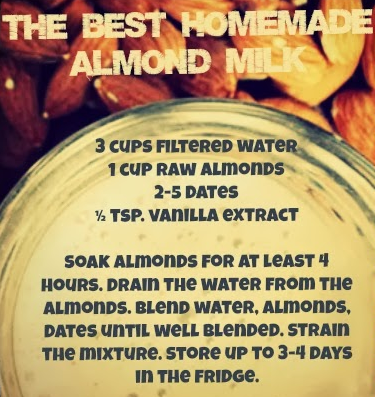Almond milk is a beverage commonly used as a milk substitute. Almond milk has been used as a milk substitute since the Middle Ages, when people preferred it over fresh cow’s milk because of its long shelf life. However, it may not be right for everyone. Here are some of the pros and cons of almond milk.
1) Almond Milk is High in Antioxidants
Almond milk is a good source of the antioxidant vitamin E, so it can help prevent cancer and slow the signs of aging. The flavonoids in almond milk also help to reduce the number of free radicals in the body, protecting you from a number of degenerative diseases that occur, such as osteoporosis and type 2 diabetes.
2) Almond Milk is Heart Healthy
Unlike cow’s milk, almond milk contains no cholesterol and no saturated fats, so it won’t damage your cardiovascular system. Almond milk is also high in omega-3 fatty acids to help lower your levels of “bad” LDL cholesterol and protect your heart. You’ll also enjoy the other benefits of adding omega-3 fatty acids to your diet, such as improved cognitive function.
3) Almond Milk is High in Vitamins and Minerals
Compared to soy and rice milk, almond milk has the highest concentrations of vitamins and minerals. Almond milk contains the following vitamins and minerals:
Copper
Zinc
Iron
Magnesium
Manganese
Calcium
Phosphorous
Potassium
Selenium
Zinc
Iron
Magnesium
Manganese
Calcium
Phosphorous
Potassium
Selenium
While cow’s milk, rice milk and soy milk are often fortified with various minerals and vitamins, all of these nutrients occur naturally in almond milk. This means that you can make almond milk yourself at home, and it’s just as good for you as any almond milk you might buy in the store.
4) Almond Milk is Low in Fat and Calories
Almond milk is a great milk substitute choice for those who are trying to lower their fat and calorie intake. Almond milk is very low in calories; it has only 40 calories per serving. It contains about three grams of fat per serving, but they’re all healthy fats that help protect your heart and preserve cognitive function.
5) Almond Milk Contains No Animal By Products
Almond milk is made only from almonds and water, though manufacturers may add sugar or vanilla for flavor. Because almond milk contains no animal products or by products, it’s suitable for vegans and vegetarians.
6) Almond Milk is Not Safe for Those with Tree Nut Allergies
Almond milk is lactose free, and contains no gluten or casein, so it’s an appropriate and safe alternative for those who suffer from lactose intolerance, or who are allergic to gluten and casein. However, almonds are a tree nut, so almond milk isn’t safe for consumption by those who suffer a tree nut allergy. If you have a tree nut allergy and you drink almond milk, you could suffer a dangerous allergic reaction.
7) Almond Milk May Not Be Safe for Infants
Almond milk doesn’t contain the nutrition of breast milk and baby formula, so it isn’t an acceptable substitute for feeding infants. Feeding almond milk to infants may cause tree nut allergies to develop. Speak to your doctor before giving almond milk to your infant.



0 Comments